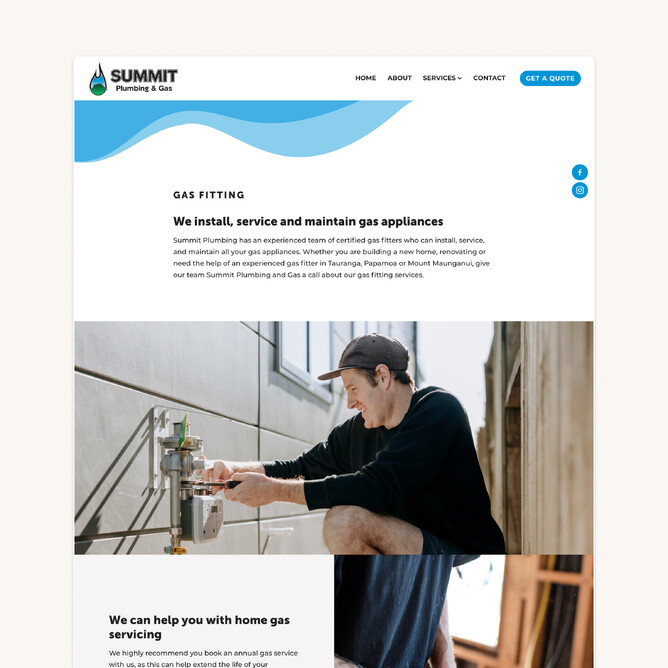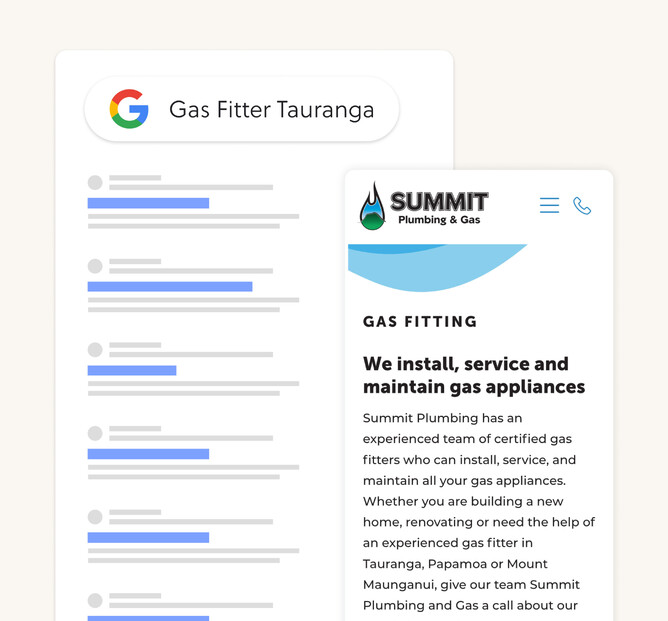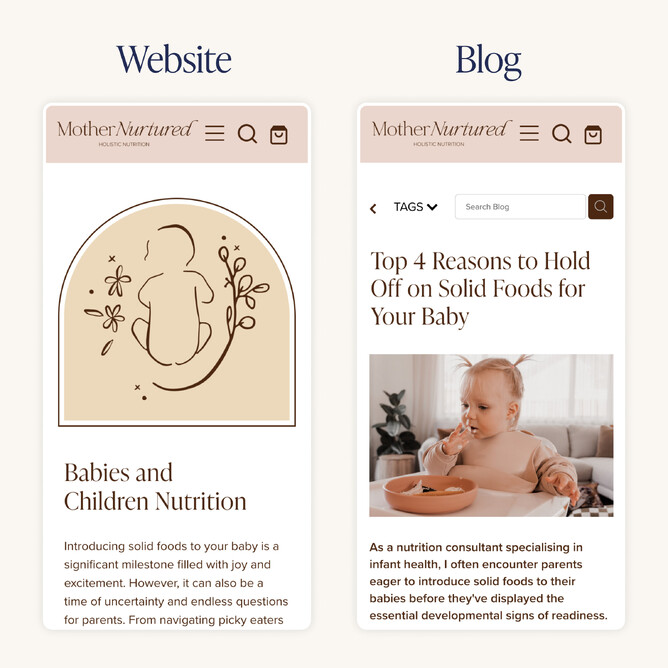In New Zealand, where Rocketspark calls home, the economic conditions are tough for many businesses. Industries like construction, trades, hospitality, and retail have been hit quite hard. These sectors are key customer segments for us, and we've picked up some insights on how savvy business operators are responding.
We see plumbers wanting to get found for smaller maintenance projects like hot water cylinder replacements or fixing leaks. Builders, who usually focus on new homes, are now looking to get found online for renovation projects. One person, who has spent years working with builders on new houses, didn’t think they even needed a website until now and is finally getting online.
Getting found in Google can seem mysterious to many but one of the most effective strategies to improve your search rankings and engage your audience is by creating specific landing pages. These pages, focused on narrow and targeted topics, can drive more traffic to your site and convert visitors into customers. In this blog, we'll explore why specific landing pages are essential and how creating interlinked blog content can enhance your SEO efforts.
Why Specific Landing Pages Matter
Improved Search Engine Rankings: Search engines like Google favour websites that offer relevant and valuable content. By creating landing pages that focus on specific topics, you increase the chances of ranking higher for those keywords. For example, if you run a construction company specialising in eco-friendly homes, a landing page dedicated to "sustainable building materials" can rank well for related searches. This specificity signals to search engines that your content is relevant to users' queries.
Enhanced User Experience: Visitors to your site are often looking for specific information. Landing pages that address a particular topic can provide a more satisfying user experience. When users find exactly what they're looking for quickly and easily, they're more likely to stay on your site longer and explore further. This reduces bounce rates and increases the likelihood of conversion.
Higher Conversion Rates: Specific landing pages can be tailored to drive conversions by addressing the needs and pain points of your target audience. By including clear calls-to-action (CTAs), testimonials, and relevant information, you can guide visitors towards taking the desired action, whether it's signing up for a newsletter, downloading a guide, or making a purchase.
Creating and linking blogs to boost SEO
While landing pages are crucial, they don't exist in isolation. Supporting your landing pages with blog content can significantly enhance your SEO strategy. Here's how:
Create Relevant Blog Posts: Write blog posts that delve deeper into the topics covered by your landing pages. For instance, if you have a landing page about "sustainable building materials," you can create blog posts that discuss the benefits of specific materials, case studies of successful projects, or tips for choosing the right materials. These posts provide additional value to your readers and establish your expertise. Our highest performing piece of content is a blog we wrote back in 2017 on a very specific topic of Can I identify who is visiting my website and it’s still delivering results for us as a high ranking piece of content.
Internal Linking: Link your blog posts to your landing pages and vice versa. Internal linking helps search engines understand the structure of your site and the relationship between different pieces of content. It also keeps visitors on your site longer, as they are guided from one piece of relevant content to another. For example, a blog post about "the benefits of bamboo flooring" should link to your landing page on sustainable building materials and vice versa.
Regular Updates and New Content: Search engines appear to favour websites that are regularly updated with fresh content. By consistently adding new blog posts that link to your landing pages, you signal to search engines that your site is active and relevant. This can improve your overall search rankings and drive more organic traffic to your site. Ironically, here’s a blog post we wrote in 2013 which talks about the importance of fresh content on your website.
Best practices for linking blogs and landing pages
Use Descriptive Anchor Text: When creating links on your website between blog posts and landing pages, use descriptive anchor text that includes relevant keywords. This helps search engines understand the context of the linked content and improves your SEO. Anchor text is the visible text you click on.
Maintain Consistency: Ensure that your blog content and landing pages are consistent in tone, style, and messaging. This creates a cohesive experience for your visitors and reinforces your brand identity.
Monitor Performance: Use analytics tools to track the performance of your landing pages and blog posts. Pay attention to metrics such as page views, time on page, bounce rate, and conversion rates. This data can help you refine your content strategy and identify opportunities for improvement.
Creating landing pages efficiently with Rocketspark
Rocketspark’s copy page feature makes it efficient to create landing pages. Create your first landing page on a specific topic and you can then copy that page and replace the content as you build out other pages.
If you’re a Rocketspark Design Partner you might consider offering a landing page template as part of your design packages and create an example landing page which your client can then build out with search friendly content.
Conclusion
Creating specific landing pages and linking them to relevant blog content is a simple yet powerful strategy to improve your search rankings and engage your audience. By providing valuable, targeted information, you can attract more visitors to your site, keep them engaged, and ultimately convert them into customers. The blogs and landing pages are also a great way to provide helpful advice to your existing customers which makes your customer service more efficient.
Remember, in the world of SEO, specificity is key. The more focused and relevant your content, the better your chances of standing out in search engine results and meeting the needs of your audience.
By following these guidelines, you can create a robust SEO strategy that not only improves your search rankings but also enhances the user experience and drives conversions. Happy blogging!



